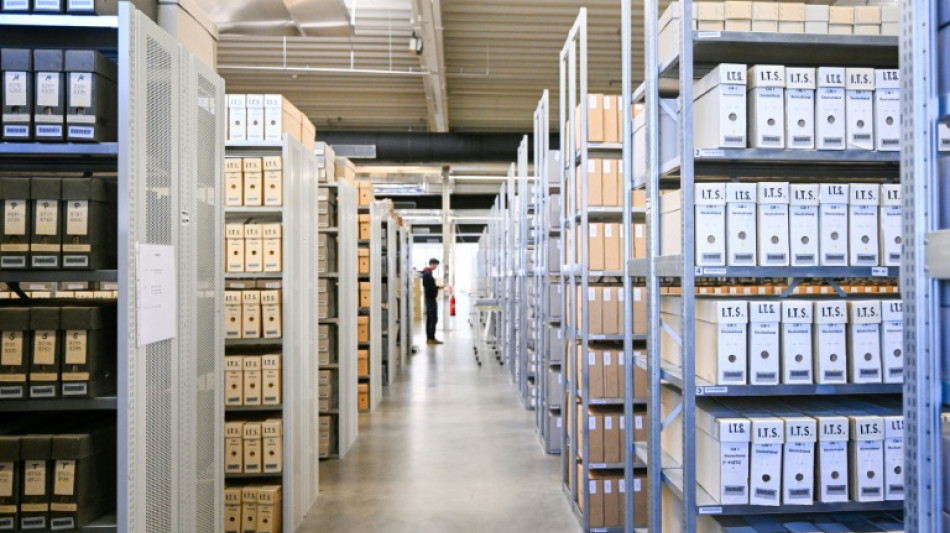
-
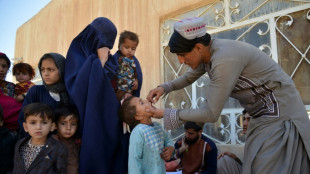 More than 10% of Afghans could lose healthcare by year-end: WHO
More than 10% of Afghans could lose healthcare by year-end: WHO
-
Stocks rise as auto shares surge on tariff break hopes
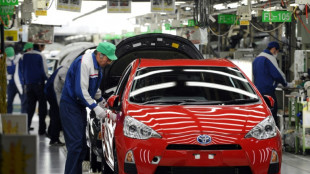
-
 Facebook chief Zuckerberg testifying again in US antitrust trial
Facebook chief Zuckerberg testifying again in US antitrust trial
-
Pakistan court refuses to hear Baloch activist case: lawyers
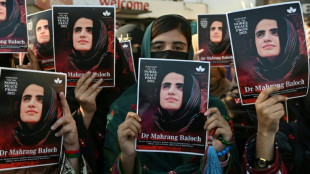
-
 Inzaghi pushing Inter to end San Siro hoodoo with Bayern and reach Champions League semis
Inzaghi pushing Inter to end San Siro hoodoo with Bayern and reach Champions League semis
-
Arsenal's Odegaard can prove point on Real Madrid return

-
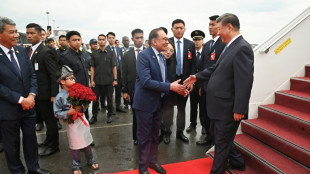 China's Xi begins Malaysia visit in shadow of Trump tariffs
China's Xi begins Malaysia visit in shadow of Trump tariffs
-
Andrew Tate accusers suing for 'six-figure' sum, UK court hears
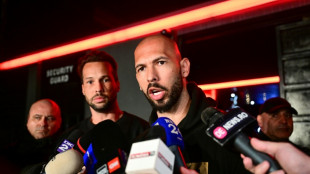
-
 Macron to honour craftspeople who rebuilt Notre Dame
Macron to honour craftspeople who rebuilt Notre Dame
-
Van der Poel E3 'spitter' facing fine

-
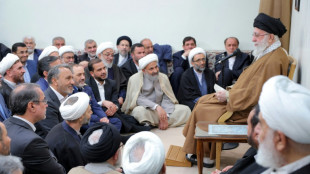 Khamenei says Iran-US talks going well but may lead nowhere
Khamenei says Iran-US talks going well but may lead nowhere
-
Nearly 60,000 Afghans return from Pakistan in two weeks: IOM
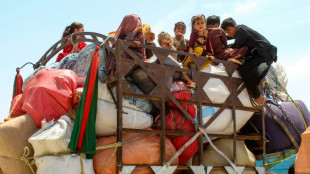
-
 Auto shares surge on tariff reprieve hopes
Auto shares surge on tariff reprieve hopes
-
Sudan war drains life from once-thriving island in capital's heart
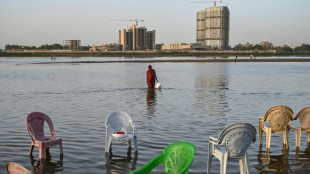
-
 Trump trade war casts pall in China's southern export heartland
Trump trade war casts pall in China's southern export heartland
-
Ukraine's Sumy prepares to bury victims of 'bloody Sunday'
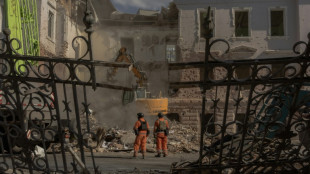
-
 Iraq sandstorm closes airports, puts 3,700 people in hospital
Iraq sandstorm closes airports, puts 3,700 people in hospital
-
French prisons targeted with arson, gunfire: ministry
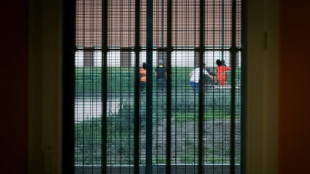
-
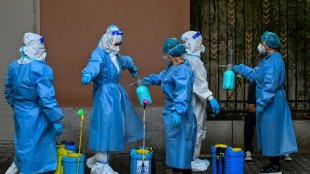 Pandemic treaty talks inch towards deal
Pandemic treaty talks inch towards deal
-
Employee dead, client critical after Paris cryotherapy session goes wrong
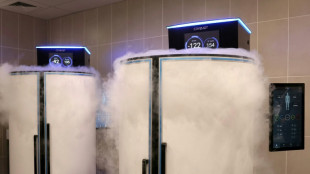
-
 Howe will only return to Newcastle dugout when '100 percent' ready
Howe will only return to Newcastle dugout when '100 percent' ready
-
Journalist recalls night Mario Vargas Llosa punched Gabriel Garcia Marquez
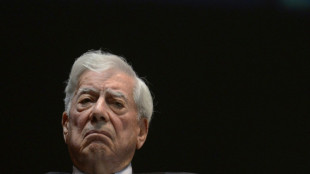
-
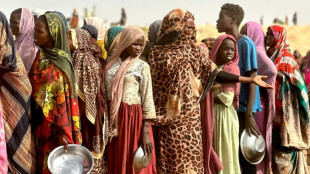 Sudan marks two years of war with no end in sight
Sudan marks two years of war with no end in sight
-
Vance urges Europe not to be US 'vassal'
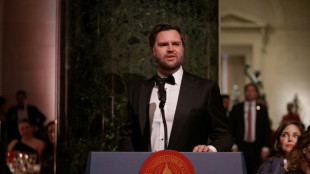
-
 China tells airlines to suspend Boeing jet deliveries: report
China tells airlines to suspend Boeing jet deliveries: report
-
Stocks rise as stability returns, autos surge on exemption hope

-
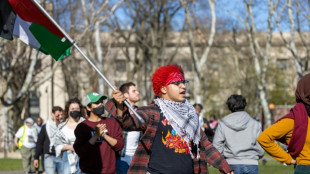 Harvard sees $2.2bn funding freeze after defying Trump
Harvard sees $2.2bn funding freeze after defying Trump
-
'Tough' Singapore election expected for non-Lee leader
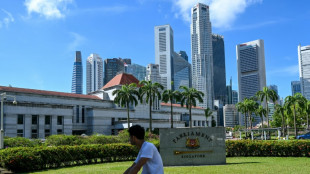
-
 Japan orders Google to cease alleged antitrust violation
Japan orders Google to cease alleged antitrust violation
-
Stocks rise as stability returns, autos lifted by exemption hope
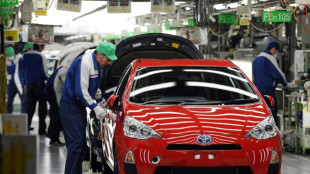
-
 Malawi's debt crisis deepens as aid cuts hurt
Malawi's debt crisis deepens as aid cuts hurt
-
Danish brewer adds AI 'colleagues' to human team

-
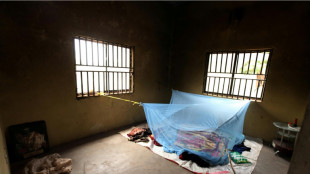 USAID cuts rip through African health care systems
USAID cuts rip through African health care systems
-
Arsenal target Champions League glory to save season

-
 Kane and Bayern need killer instinct with home final at stake
Kane and Bayern need killer instinct with home final at stake
-
Mbappe leading Real Madrid comeback charge against Arsenal

-
 S. Korea plans extra $4.9 bn help for chips amid US tariff anxiety
S. Korea plans extra $4.9 bn help for chips amid US tariff anxiety
-
Xi's Vietnam trip aiming to 'screw' US, says Trump
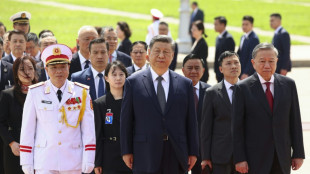
-
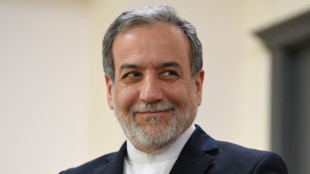 Iran's top diplomat to visit Russia after US nuclear talks
Iran's top diplomat to visit Russia after US nuclear talks
-
China accuses US spies of Asian Winter Games cyberattacks

-
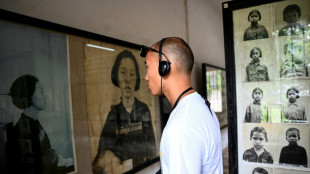 Cambodia genocide denial law open to abuse, say critics
Cambodia genocide denial law open to abuse, say critics
-
Holocaust remembrance and Gaza collide in Brussels schools
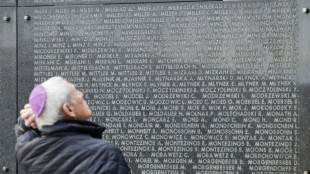
-
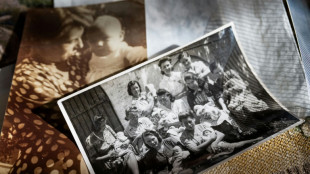 The miracle babies who survived Ravensbruck
The miracle babies who survived Ravensbruck
-
Asian stocks mixed as stability returns, autos lifted by exemption hope
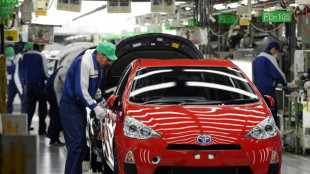
-
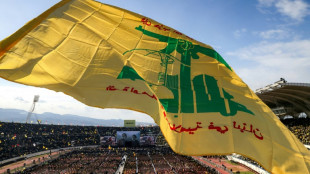 Disarming Lebanon's Hezbollah no longer inconceivable: analysts
Disarming Lebanon's Hezbollah no longer inconceivable: analysts
-
London hosts talks to find 'pathway' to end Sudan war
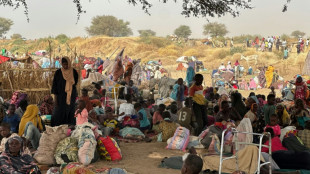
-
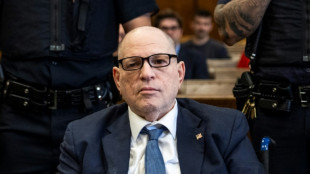 Harvey Weinstein New York retrial for sex crimes to begin
Harvey Weinstein New York retrial for sex crimes to begin
-
Meta news ban intensifying Canadians' legacy media break

-
 All Black wing Tele'a announces Japan switch
All Black wing Tele'a announces Japan switch
-
Chinese EV battery giant CATL posts 33% surge in Q1 profit


German archive where victims of the Nazis come back to life
If it wasn't for the Arolsen Archives, half-sisters Sula Miller and Helen Schaller would never have met.
American Miller and German Schaller only recently discovered they had the same father -- a Holocaust survivor who emigrated to the US.
Miller "contacted us because she was looking for information about her father", said Floriane Azoulay, director of the Arolsen Archives, the world's largest repository of information on the victims and survivors of the Nazi regime.
Mendel Mueller, a Jew born in the Austro-Hungarian Empire, was incarcerated in two Nazi concentration camps: Buchenwald in northern Germany and Auschwitz in what was then occupied Poland.
An investigation of the archives revealed he had another daughter, Helen, who was still alive and living in Germany.
"Thanks to us, the two women got to know each other," Azoulay said.
Eighty years after the end of World War II, people all over the world are still discovering the fate of their family members sent to Adolf Hitler's Nazi death camps.
The vast Arolsen Archives, located in the quaint spa town of Bad Arolsen in central Germany, contain millions of documents and objects.
When Miller contacted the archive to find out about her father, researchers stumbled upon a 1951 letter from his wife looking for his whereabouts.
Shortly after the war, Mueller had married a German woman -- the mother of his daughter Helen, born in 1947.
But some time later, he left for the US without her and started a new life there, marrying an Austrian woman -- who gave birth to Sula in 1960.
Four years after Miller's initial inquiry, investigators from Bad Arolsen managed to track Helen down and the two sisters met for the first time last year.
"Their physical resemblance was striking," Azoulay said.
The two had complicated and conflicting views on their father, but "their meeting helped them make peace with the past", she said.
- Watches, wallets and rings -
Although 90 percent of the material held by the Arolsen Archive has now been digitised, the complex still stores some 30 million original documents on almost 17.5 million people.
There are also thousands of items such as watches, rings and wallets collected from the old Nazi camps.
The archive was originally set up by the Allies in early 1946 as the International Tracing Service to help people find relatives who had disappeared during the war.
It mostly dealt with Jews but also Roma, homosexuals, political dissidents and "racially pure" children kidnapped by the Nazis as part of a programme to address the falling birth rate.
Bad Arolsen was chosen because it had escaped Allied bombing and had a working telephone network, and because of its location at the centre of Germany's four occupation zones (French, American, British and Soviet).
At first the service was run by a curious mix of members of the Allied forces, Holocaust survivors from all over Europe and Germans -- including former members of the Nazi party.
But from the 1950s onwards, as many of the survivors left the country, German staff numbers increased.
Today, the archive has around 200 employees, assisted by some 50 volunteers around the world.
And it is still handling around 20,000 enquiries per year, according to Azoulay, often from children or grandchildren of victims or survivors who want to know what happened to them.
Like Abraham Ben, born to Polish-Jewish parents in a displaced persons camp in Bamberg, southern Germany, in May 1947.
- No grandparents -
Now almost 80, Ben is still hoping to shed light on the fate of his father's family, who were left behind when he escaped from the Warsaw Ghetto.
"There is a high probability that they died in the camps," he said.
Ben's father "never talked about (the Holocaust)... and we never asked him about it. We felt it was too painful for him."
Almost no one had grandparents in the centre for Jewish refugees where Ben was born because the elderly -- too weak to work -- were first to be killed in the camps.
"At the age of 10, I realised other children had grandparents because I went to a German school and my classmates would describe the gifts they had given them at Christmas."
Ben said he is hoping to find "cousins who may have survived" among the children of his father's five brothers and sisters.
The archives at Bad Arolsen include documents issued by the Nazi party, such as Gestapo arrest warrants, lists of people to be transported to the camps and camp registers.
The documents are often surprisingly detailed, given the low chances of survival of the people listed in them.
In Buchenwald, the camp register kept a record of every prisoner's height, eye and hair colour, facial features, marital status, children, religion and which languages they spoke, as well as their name, date of birth and deportation number.
- 'Best day of her life' -
From the beginning, the records were sorted according to a phonetic alphabet, since the same name can be spelled differently in different languages.
"For example, there are more than 800 ways to write 'Abrahamovicz'," said Nicole Dominicus, head of archive administration.
Later the archives were expanded to include files compiled by the Allies, as well as correspondence between the Red Cross and the Nazi administration.
The files also contain letters written by people searching for their lost relatives.
In a letter written to the International Tracing Service in 1948, a mother who survived Auschwitz asks about her missing daughter, who she was separated from in the camp.
Volunteers working for the archives outside Germany also help trawl through records in other countries.
Manuela Golc, a volunteer in Poland, recently met a 93-year-old woman to hand over a pair of earrings and a watch that had belonged to her mother, who was deported in 1944 after the Warsaw Uprising.
"She told me it was the best day of her life," Golc said, with tears in her eyes.
German Achim Werner, 58, was "shocked" when the archives contacted him to let him know they had his grandfather's wedding ring, taken from him when he arrived at the Dachau concentration camp.
Werner had visited the camp near Munich several times, on school excursions and as an adult, without knowing that his grandfather had been held there.
"We knew that he was detained in 1940, but nothing after that," he said.
Werner does not know why his grandfather was imprisoned, and since the archives have no further information about him, he probably never will.
But he wants to keep the man's memory alive and has given the wedding ring to his daughter.
"She will wear it as a pendant and then pass it on to her children," he said.
M.Thompson--AMWN
